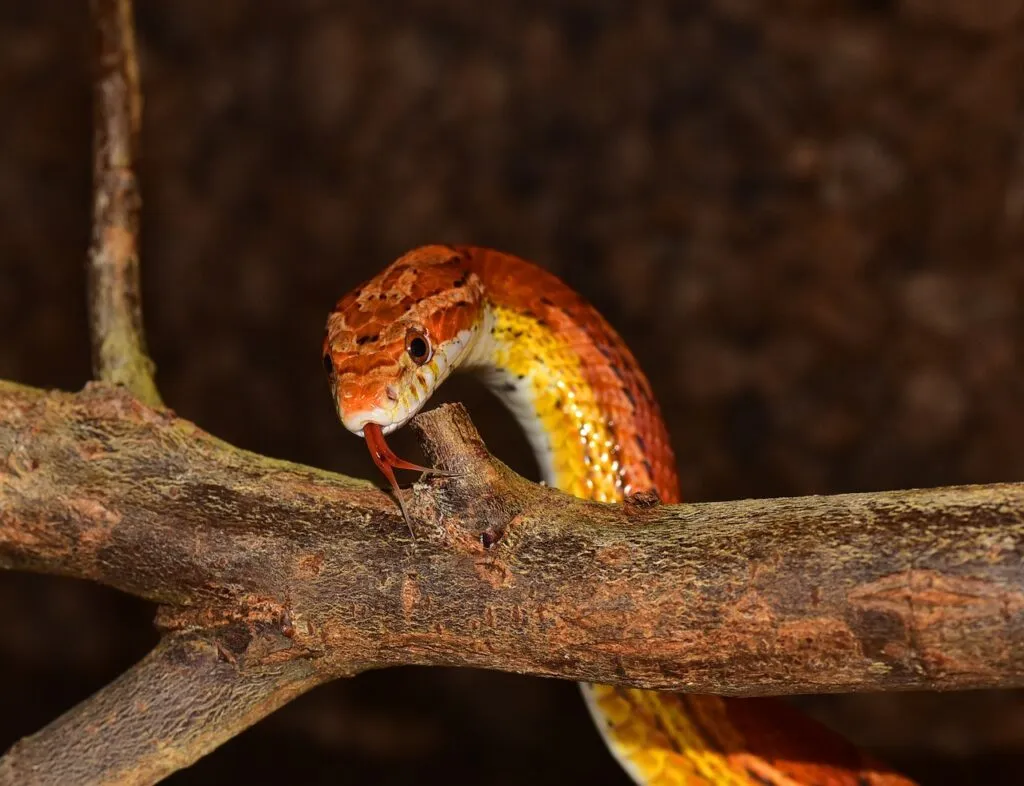
Does your pet snake keep moving around in its
Snakes glass surf for various reasons. It may be because they’re unfamiliar with their glass enclosure and are trying to explore. It can also be a sign of husbandry issues, such as being too warm, hungry, or stressed.
Continue reading to learn more about the causes of glass surfing – and, most importantly, how to solve them.
Table of Contents
What Is Glass Surfing?
Glass surfing is the name for when your pet snake keeps on trying to climb its glass enclosure. If you’ve never seen it before, here’s a demonstration:
While glass surfing itself is not dangerous, it’s important to think about why your snake is doing it. As a one-off, it might not be something to worry about, but if there are serious reasons underlying the behavior, you’ll need to correct them.
4 Reasons Why Your Snake Is Glass Surfing
Here are the top four reasons why your snake is climbing the glass.
1. Your snake is not familiar with its glass enclosure
Glass surfing often happens when a snake is getting used to a new enclosure. This can be when you first bring your pet snake home or if you change its enclosure.
Sometimes, the snake might be trying to find a way out of the enclosure, either to explore or because it is bored. It also might not understand how the glass barrier works.
What you can do
First, you have to make sure that the snake’s glass terrarium is inescapable. For a glass terrarium with a mesh lid or screen, the lids should have clamps to prevent the snake from escaping.
The Repti Zoo Glass Tank has two sliding top lids with clamps to prevent escaping.
Second, ensure that your snake’s enclosure has everything they need. This should include a basking area, things to climb up, and places to hide.
Lastly, you can also take the snake out of the
2. Your snake is hungry
A hungry snake often prowls in front of the enclosure and focuses on you, its
For example, ball pythons are often seen climbing the sides of their tanks when they are hungry.
Tip: Check out our article here to learn more signs of your snake being hungry.
What you can do
Don’t let your pet snake get too hungry. Ensure that you are following the right feeding schedule and that you are feeding your pet snake enough.
A snake’s diet typically includes mice and other small mammals. A general rule in feeding snakes is to choose a mouse that is 1 to 1.25 times the size of your snake’s midsection.
The frequency of feeding depends on the size of the snake. For example, a smaller or younger ball python has to be fed once every five days. For bigger and older ones, once every week or two is all that’s needed.
Here is a chart to help you ensure that you feed your pet snake regularly, depending on the type.
| Type of Snake | Feeding Schedule |
| Corn Snake | 1x in 7 to 10 days |
| Rosy Boa | 1x in 7 to 10 days |
| Garter Snake | Juveniles – Every other day. Adults – 1x a week |
| California King snake | First year – 1x in 5 to 7 days. Following years – 1x in 10 to 14 days |
| Ball Python | Juveniles 1x in 7 days. Adults 1x in 14 – 21 days |
3. Incorrect temperatures or humidity
Snakes are cold-blooded creatures. The snakes’ natural behavior in the wild is to move around to regulate their temperature. They go from the shade to sunlight, above the ground, and then burrow.
Their health and happiness depend on their temperature control. If your snake is surfing the glass enclosure, it could be that the climate in the enclosure makes it uncomfortable.
The ideal temperature ranges between 75 and 85 degrees Fahrenheit for most common pet snakes. Still, you need to do your research on your particular pet snake.
Snakes also require a certain humidity percentage. For example, a ball python in an enclosure needs about 50 to 60% of humidity level.
Ball pythons may try to climb the enclosure if they don’t get their ideal humidity.
What you can do
This is why terrarium thermometers and hygrometers are essential in the
There should also be a thermal gradient within their
Ideally, the heat mat (like this one) or other heat sources should be placed at one end of the
Your pet snake will be able to choose where it’s most comfortable.

4. Your snake might be stressed
Persistent glass surfing is considered a stereotypy, which means an abnormal repetitive behavior. It looks different from when a snake is exploring its
These often happen when an animal isn’t coping with its captive environment. Maybe they have extra energy that they’d usually spend moving and searching for prey.
Or maybe something’s stressing them out and the movements help calm the extra adrenaline.
For pet snakes, the most common reason for glass surfing as a stereotypy is if the enclosure is too small or doesn’t have enough things in it to keep their interest.
Another reason for them to be stressed may be too much disturbance near the
What you can do
The first thing to do is check that the enclosure is the right size for your snake. You can find a list of recommended
Then, you should make sure your enclosure is set up with plenty of things to keep your snake occupied. Some of these things will be permanent parts of the enclosure furniture, and other things you can change to give variety.
Snakes are arboreal or semiarboreal, so they love trees. Add a perch in the enclosure to allow your pet snake to express its natural behavior by climbing.
A perch that looks like a real branch will add a natural look to your
Enrichment isn’t just about the enclosure: you can make life more interesting for your snake by getting its brain working. This could take the form of puzzles or some simple training.
There’s a great explanation of how to use training for cognitive enrichment in this video below.
As well as making sure your snake has what they need, you should also check for anything that could be stressing them out.
Ensure that the snake’s
Conclusion
Glass surfing isn’t dangerous, but it can be a sign that something is off. It’s now your turn as an owner to work out which of these potential reasons is making your snake surf the glass – and implement our advice for a happy, content snake!
- Enchi Ball Python: A Unique and Stunning Morph of Python regius - March 27, 2025
- Emerald Tree Monitor: The Enigmatic Green Guardian of the Rainforest - March 26, 2025
- The Egyptian Cobra (Naja haje): A Fascinating Serpent - March 25, 2025
